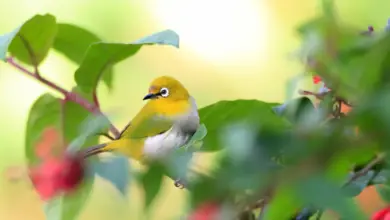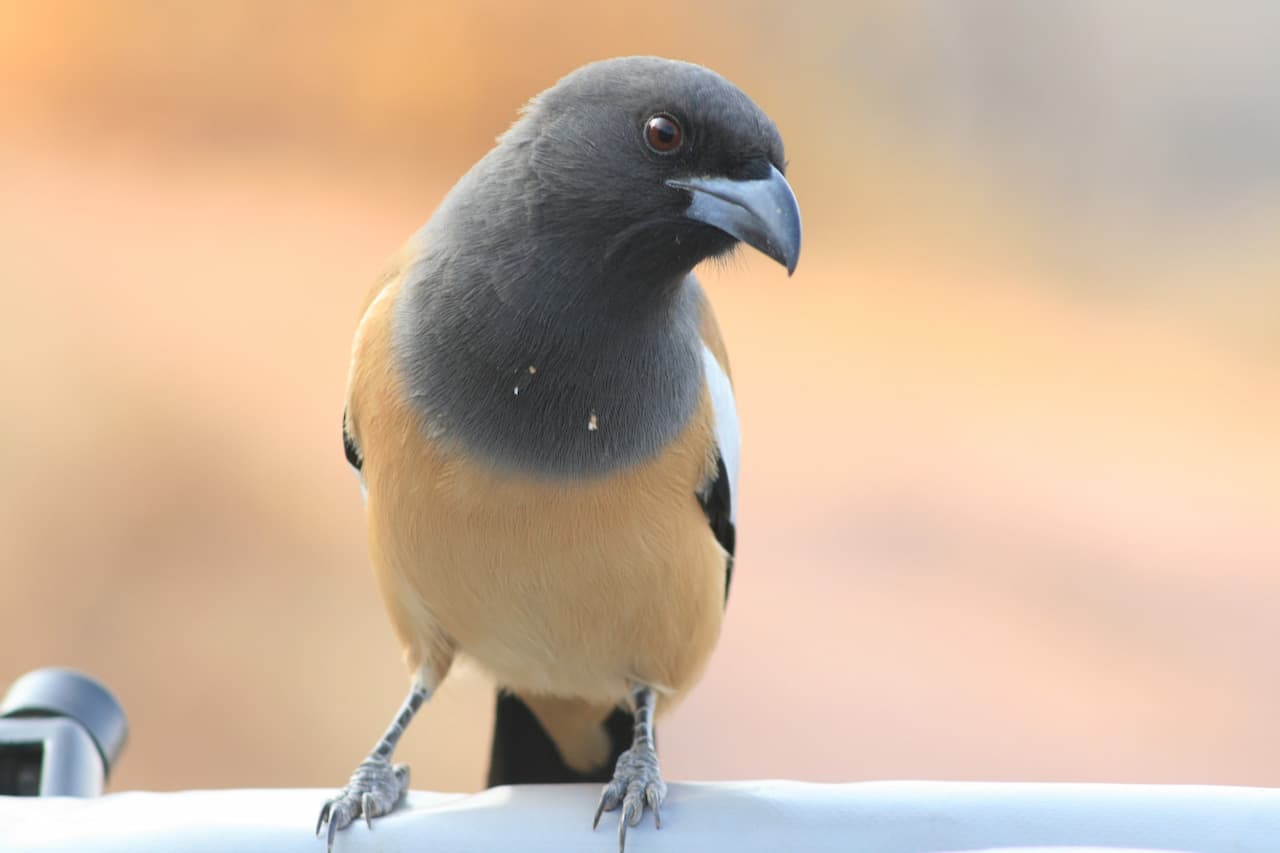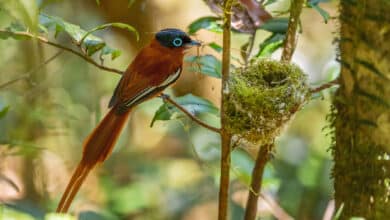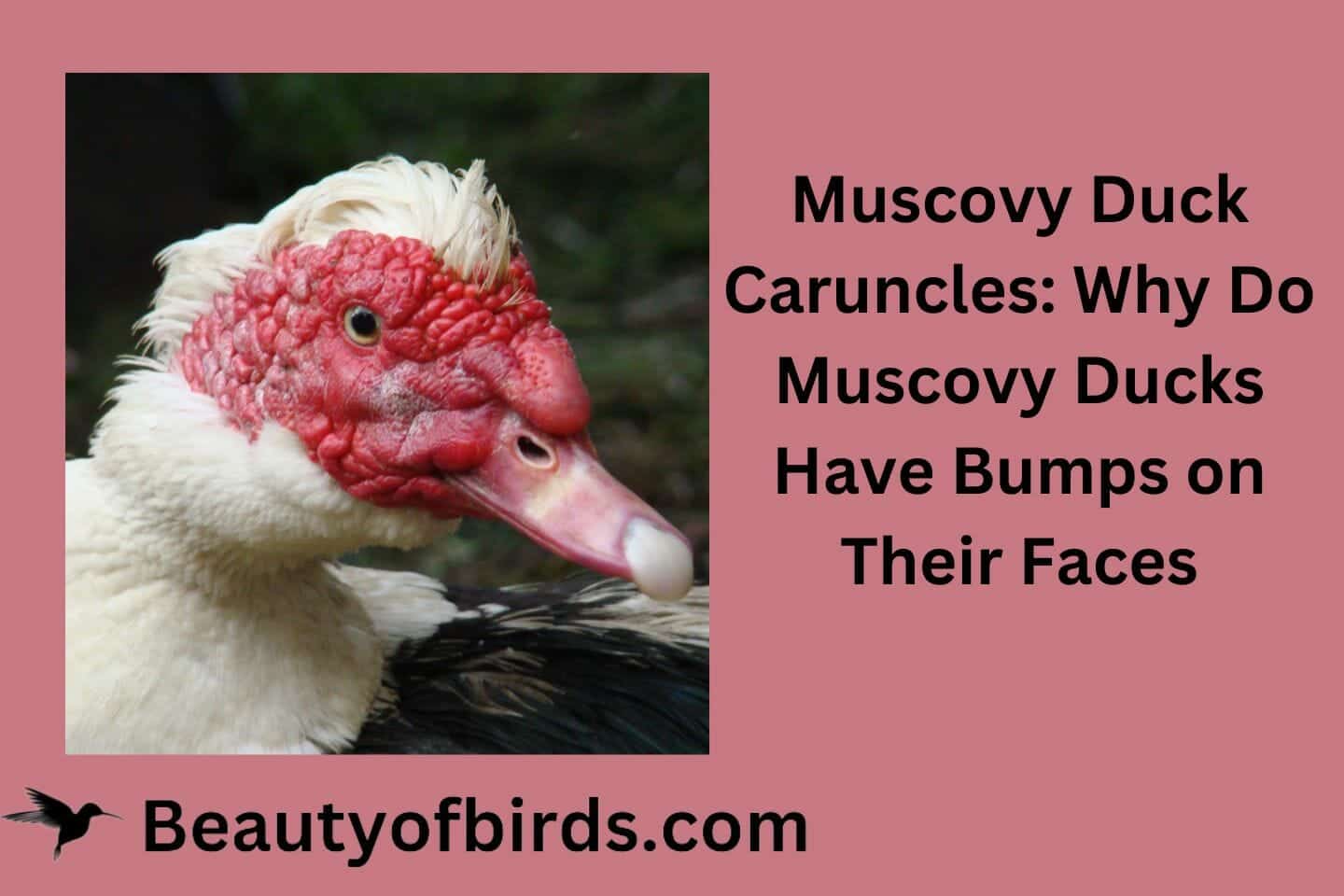Where Do Crows Nest? Explained
Most bird lovers have never seen a crow’s nest, except on pirate ships. So, where do crows nest? Why can’t we see them? Let’s find out.
Crows build nests in many spots. You can find them in trees, on window ledges, and even in pylons.
Each nest can hold up to 6 eggs, but sometimes, crows can lay up to 9 eggs or even more! Crows build intricate nests with layers to ensure that their babies are safe from predators or bad weather.
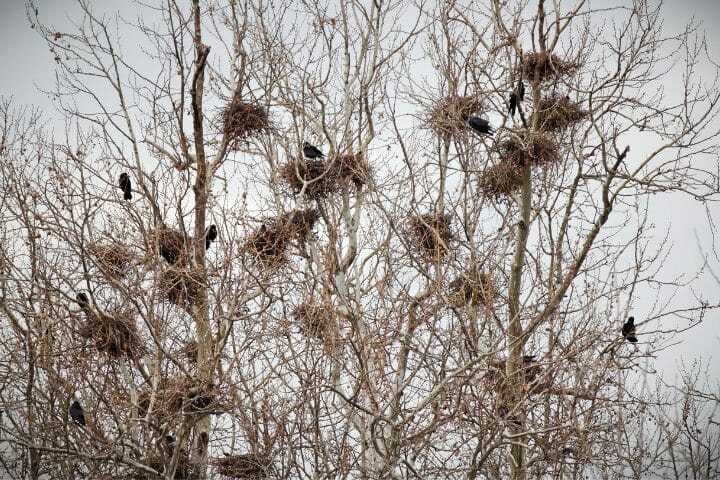
Where Do Crows Build Their Nests?
Crows usually build their nests in deciduous tree branches. Before the breeding season, female crows will spend time scouting the area to find the best spot for their nests.
They will choose spots that are hidden behind leaves and branches so that the nests cannot be easily discovered by potential predators.
Parent crows usually select a spot on a tree anywhere between 15 to 60 feet from the ground. If they cannot find one, they can also use shrubs, top of utility poles, towers, and window ledges for nesting.
What Kind of Nests Do Crows Build?
Crow nests have two layers, a soft inner layer (for the hatchlings) and a tough outer layer (to make them safe). These nests are usually nine inches high and have a diameter of about 2 feet. They are shaped like a cup, like most other birds.
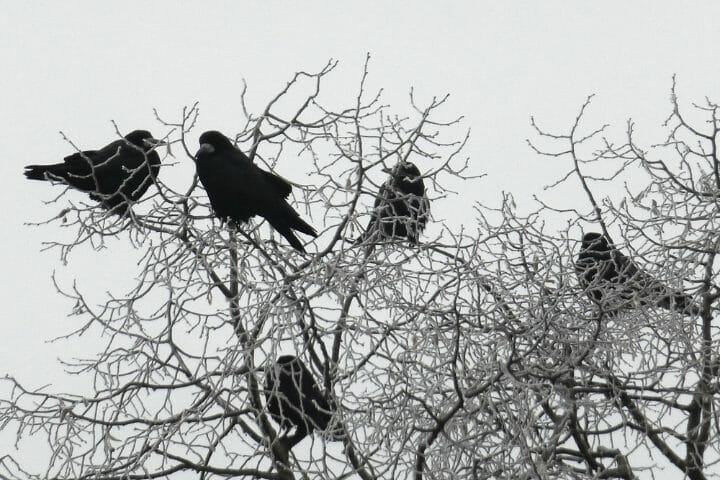
What Materials Do They Use
Crows use a host of materials when building nests. They usually collect soft materials like leaves, bits of fabric, thread, and even some plastic for the inner layer. Crows often put wood shavings and even hair in the inner layer.
The outer layer is made of more natural materials like pieces of bark, twigs, and even moss. This makes the nest sturdy and also comfortable.
Differences Between Nests of Different Corvids
There are about 45 species of corvids in the world, and while they have many similar nesting habits, their nests can be different from each other in subtle ways.
For example, Carrion Crows usually build stick nests, while American Crow nests are often lined with softer materials such as pine cones, soft bark, and even animal hair.
You can also differentiate corvids by their nesting sites. Pied Crows often choose isolated, tall trees.
Hooded Crows, on the other hand, build nests almost everywhere, from trees and cliff edges to pylons and buildings.
The Indian Jungle Crow usually prefers trees with broad branches and not buildings.
How They Hide Their Nests
Crows nest in many spots, but one thing is always common – they keep their nests well concealed.
To hide the nests, crows will choose a branch hidden in foliage on which to make their nest. Some crows even build decoy nests!
These are small nests built almost in plain sight to mislead predators like hawks and owls. Even if the nest is not on a tree, crows will always look for a sheltered spot to build their nest.
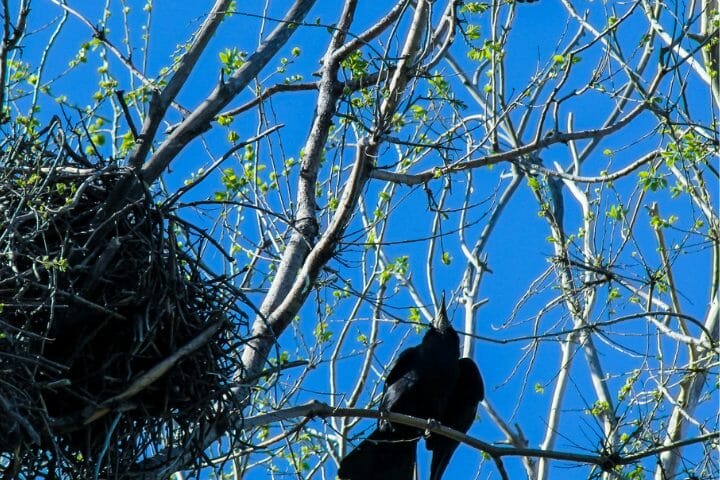
Crows Build Nests in Groups
Nesting habits can vary from crow to crow. Sometimes only the parent crows will work together to build the nest.
However, often other crows will help the female build its nest. They will bring twigs and leaves, and the female can use those to create a comfortable lining in her nest for the hatchlings.
Do Crows Return to the Same Nest?
Crows do not reuse the same nest, but sometimes they might build on an older nest.
Returning to the same nests every breeding depends on various factors. If the nest is sturdy enough and if there are no sites for new nests, parent crows may choose to build on top of their old nests.
They may also do this if they cannot find enough materials to build a new nest. Otherwise, crows will prefer to build new nests.
Sometimes, crows reuse nests because of partial migration. For example, some American crows may migrate while others may stay put during winters.
When they migrate, they look for new spots in the next breeding season. However, crows that do not migrate might return to the same tree or site to build nests.
Some migratory birds use the nests left behind by other birds, like crows. They will build on top of these abandoned nests. Cuckoos also share an interesting relationship with crows. They lay their eggs in a crow’s nest and fly away (known as brood parasitism).
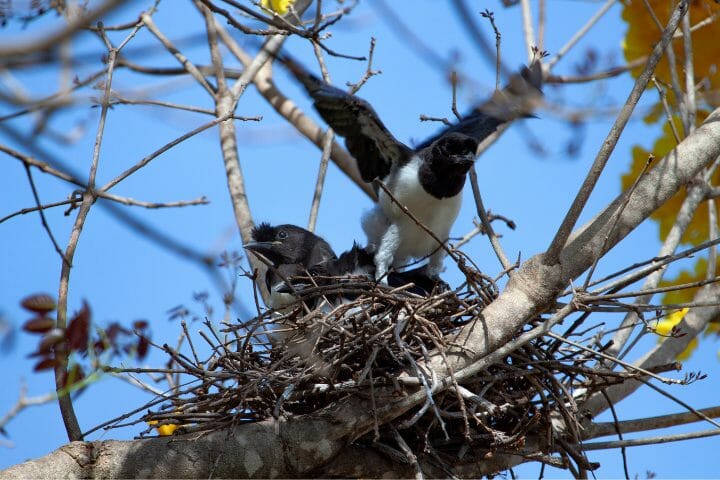
Do Crows Sleep in Their Nests?
Adult crows generally do not tend to sleep in their nests, even after laying eggs. They will only do so if the temperatures have dropped and they need to keep the eggs or the nestlings warm. In this case, the crow family will huddle together and sleep in the nest.
Otherwise, crows will avoid sleeping in their nests. This is a common behavior in birds, and almost all species do the same.
Crows usually sleep perched on branches. Crows sleep in communal roosts; several crows will huddle together on a branch at night while sleeping. This helps them stay warm in the winter.
Some crows leave trees and sleep in open building spaces. Sleeping in such places allows them to be safe from nocturnal predators like owls.
Frequently Asked Questions
What time of year do crows have babies?
Are crows good to have around?
However, if you keep birds and have hatchlings in bird boxes, then it may be wise to keep crows away from them because they can attack and eat baby birds.
Why do we never see baby crows?
What do crows hate?
If you notice the crows in your neighborhood, you will see that a loud bang or some sudden booming music will shock these birds, and they’ll fly up from the trees all at once.
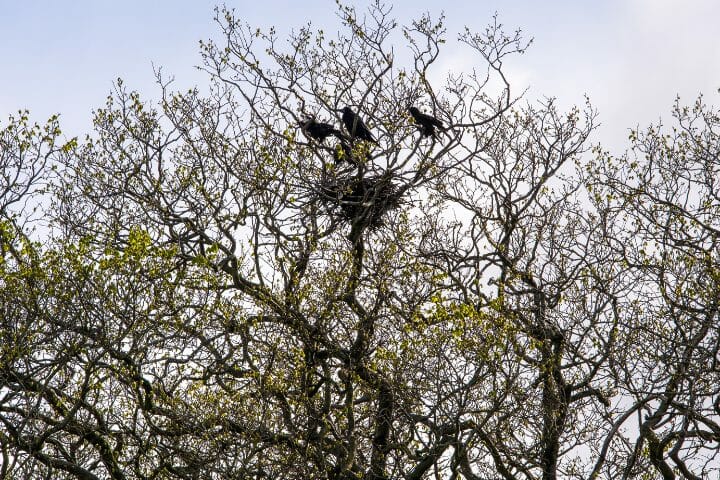
Wrap Up
The nesting habits of crows are unique and interesting. While it is difficult actually to find baby crows, if your neighborhood has crows, then the trees are definitely home to their nests. You need to keep a keen eye out for the nests, especially during the breeding season.

